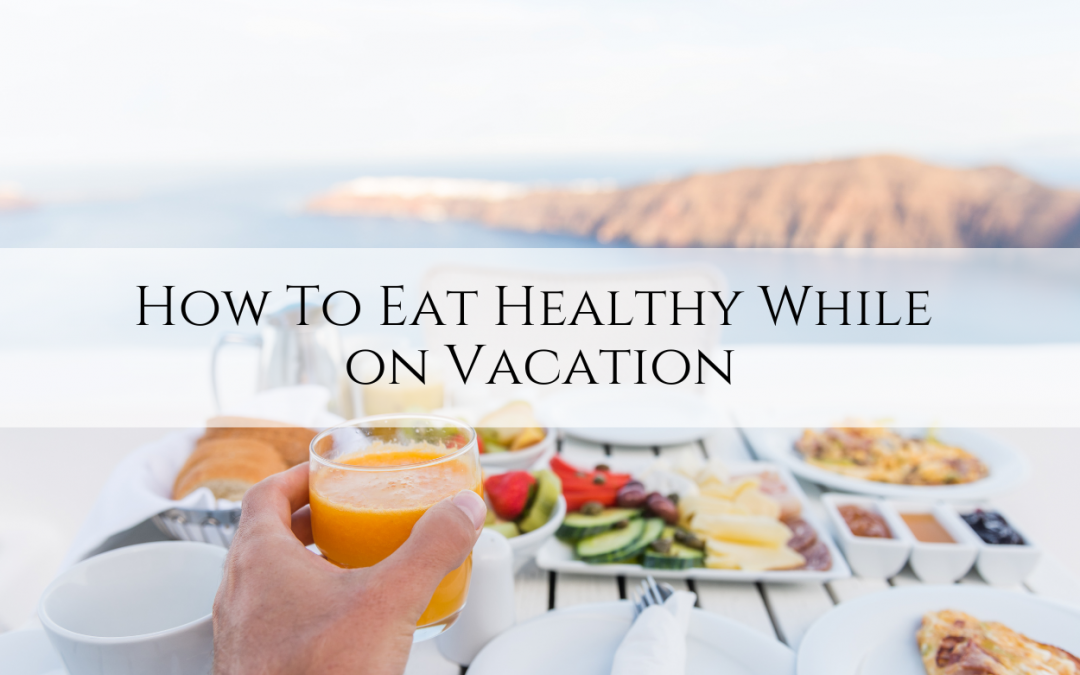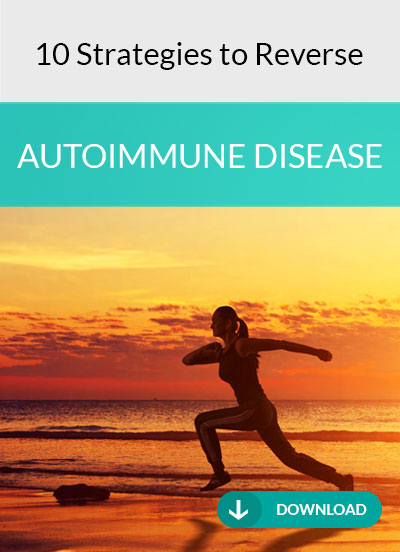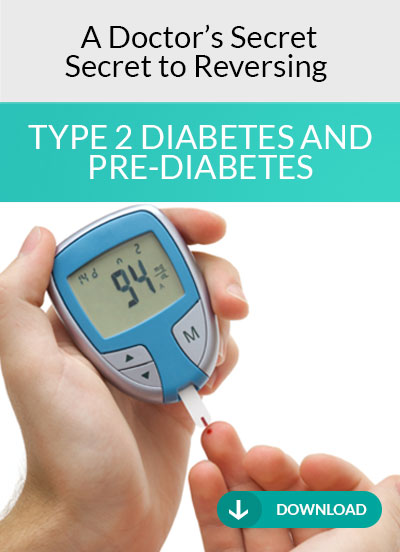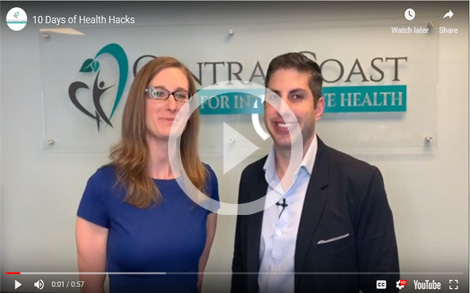How to Eat Healthy While Traveling — Tips and Tricks for People on the Go
With summer here, a lot of my patients are asking how to eat healthy on vacation. Let’s face it, avoiding unhealthy foods while on a trip isn’t always easy. While walking past a bakery, you smell the aroma of fresh-baked pastries and your willpower crumbles. Or during a long airport layover, you can’t find anything you can eat.
Many of my patients with autoimmune diseases do best when they avoid certain foods such as gluten, dairy, eggs, soy, corn, and sugar, to name a few. If you have ever tried to eliminate these ingredients, you know it can be a real challenge to successfully eat outside of the house! These ingredients are found in practically all foods, especially convenience foods and quick-serve restaurant foods. Sometimes restaurant staff are not aware of food sensitivities and don’t know the ingredients in most of their menu items.
No one wants to have a flare-up of their symptoms while they are on vacation, or a drawn-out recovery time after vacation, just because they indulged!
Eating healthy food when traveling can be a struggle, but it’s not impossible. You can still enjoy good food while on vacation, it just takes some advance planning. Here are some tips for eating healthy on vacation so you can stay on track with your health goals this summer and beyond.
How to Eat Healthy Traveling – Before You Go
If you want to know how to eat healthy on a trip, you’ll want to start preparing now with a few simple strategies you can do before leaving home.
Know Which Foods To Avoid
The first step is to know which foods are going to give you trouble. Long before you leave, it’s a good idea to have your functional medicine provider order a food sensitivities test, or help you go through a food proper elimination and reintroduction process, so you know which foods cause a reaction. That way on your travels you’ll know to avoid the worst offenders. Autoimmune patients often need to avoid dairy, gluten, and sugar, as these foods can cause inflammation.
Set Intentions
Mentally prepare for eating healthy on vacation. Set the intention that you’ll eat healthy on your trip, and stay true to that intention once you set foot out the door. Also plan for situations that could cause you to stray from your intention. For example, maybe if you go too long without eating, you’re likely to have cravings. In that case, bring lots of healthy snacks.
Research Stores and Restaurants in Advance
Speaking of snacks, before leaving on your vacation, do your research. Find health food stores or grocery stores near where you’re staying that will have healthy snacks that you can eat to tide you over until meals. The goal is to stop your blood sugar from crashing, because once it drops you’ll hear the siren call of that cinnamon roll or slice of cake and might not be able to resist.
Another tip: make sure to reserve a hotel room with a mini-fridge so that you can store healthy perishable food.
Before leaving home, research restaurants that offer items compatible with your eating plan. It’s often easy to find restaurants that offer gluten-free entrees. For some dietary considerations you may need to dig a little deeper, for example to find out if the restaurant cooks items with seed oils or butter or if they serve grass-fed meat rather than conventional beef. Some restaurants are willing to work with your dietary needs, and you can find that out by calling in advance. If the online menu shows gluten-free, allergy-free, or vegan items, then you probably have a restaurant that is mindful about food sensitivities.
Learn Stress-Coping Techniques
Vacations expose you to both good and bad stress. Being really excited about going somewhere fun can be a stress on the body. At the same time, lots of stressful things can happen on the trip itself. Your plane could get cancelled, you might get lost, or any number of unexpected things can happen. Rises in the stress hormone cortisol can lead to cravings, so it’s a good idea to learn some stress-management techniques such as meditation, yoga, and deep-breathing.
How to Eat Healthy on Vacation — During Your Trip
Once you set foot out the door, here are some ways to boost your willpower and increase your chances of sticking with your healthy eating plan while away from home.
Don’t Let Yourself Get Too Hungry
We circle back here to snacks. You definitely need to have a stash of healthy food while traveling. Have a piece of dark chocolate with you or some gum, so if you get a craving, you have a healthier option available. If you’re traveling on a plane, take nuts or something that’s going to be more protein and fat that can sustain you for longer. Plantain chips are a healthy snack that can tide you over.
When traveling, one thing that often gets thrown off is the timing of your eating, which can affect blood sugar. Having snacks with you can compensate for long gaps without food.
Look for the Allergen-Free Menu Items
Hopefully you found a few restaurants that had healthy food options for you during your pre-trip planning. To eat out successfully, look for the healthier, simpler items on the menu with fewer unnecessary ingredients.
I try to stick with meat and veggies if I am eating at a restaurant and avoiding gluten and dairy. Look for meats that you like. Grass-fed beef or free-range chicken are better choices, if available. Check out vegetable sides that are free of sauces and ask if they are cooked in butter, in case that needs to be left off. Salads are a very safe bet for avoiding food sensitivities and eating healthy while travelling. Salad dressings, however, can be an issue if you are avoiding dairy or soy or gluten. I sometimes ask for oil and vinegar with my salad, if available. Remember that fried foods are contaminated with gluten and other ingredients found in the fryer.
Dodge the extras at restaurants. Send back the free bread or chips and order a healthy appetizer instead, or just wait for your entrée. Avoid the desserts at restaurants, but make sure you have something healthy to satisfy your sweet tooth in your bag or in the car.
Be Careful of How Much You Eat
Make sure you’re not overeating or overindulging. Doing this can affect hormones like cortisol and insulin. Know what portions work best for you at home and try to eat those same amounts while traveling. You can always put what you don’t eat into a to-go box and take it back to your hotel or Airbnb.
Take Digestive Enzymes
When I go out to eat, I take digestive enzymes. Even if you ask for a gluten-free or dairy-free item, it’s still usually prepared in the same kitchen as foods you can’t eat so there’s potential for reactions due to cross-contamination. Taking a digestive enzyme minimizes the chance of cross-reactivity happening. Just taking digestive enzymes can be helpful for people who are really sensitive to certain foods and can reduce the risk of a negative reaction.
Stay Hydrated
Drinking enough fluids is important. Otherwise, your body might be sending you the signal that you’re thirsty, but you mistake it for a hunger signal and then overeat.
Think About Consequences
Remember: just because you can eat something doesn’t mean you should. I ran into that a few times on trips, including on a visit to New Orleans. I wanted to try the gluten-free beignets because they were gluten-free. But did I really need them? Were they really the healthiest choice? Even a gluten-free beignet has lots of sugar in it, and it’s deep fried. Not exactly good for health.
However, sometimes you have to weigh your rewards. Ask yourself: Is it going to be worth it in the long term? Even though it’s good eating it for five seconds, is it going to cause you to flare up for the rest of your trip?
Know Your Limits
Some people can get away with eating a little bit more unhealthy food while traveling. It’s also different in different places. I have patients who travel to Europe and they can eat pretty much everything without flaring up, and then they eat the same thing here and it sends them into a downward spiral for weeks. It’s about getting to know your body and what you can tolerate and get away with. I often help patients recognize what signs to look for to figure out if they are having a reaction.
How to Eat Healthy When Traveling
As a functional medicine provider, I can show you how to stay on a diet while traveling. Book a free 15-minute discovery consultation with the Caplan Health Institute before you take your trip in order to have a road map for optimal health.
If you come on board as a practice member, I can order some tests that will tell you what foods you should avoid in order to feel your best. In addition, I can order lab work that tells us whether you have blood sugar, cortisol, or insulin problems that will affect what and when you eat. You’ll feel more energetic and healthy, both at home and on vacation.





